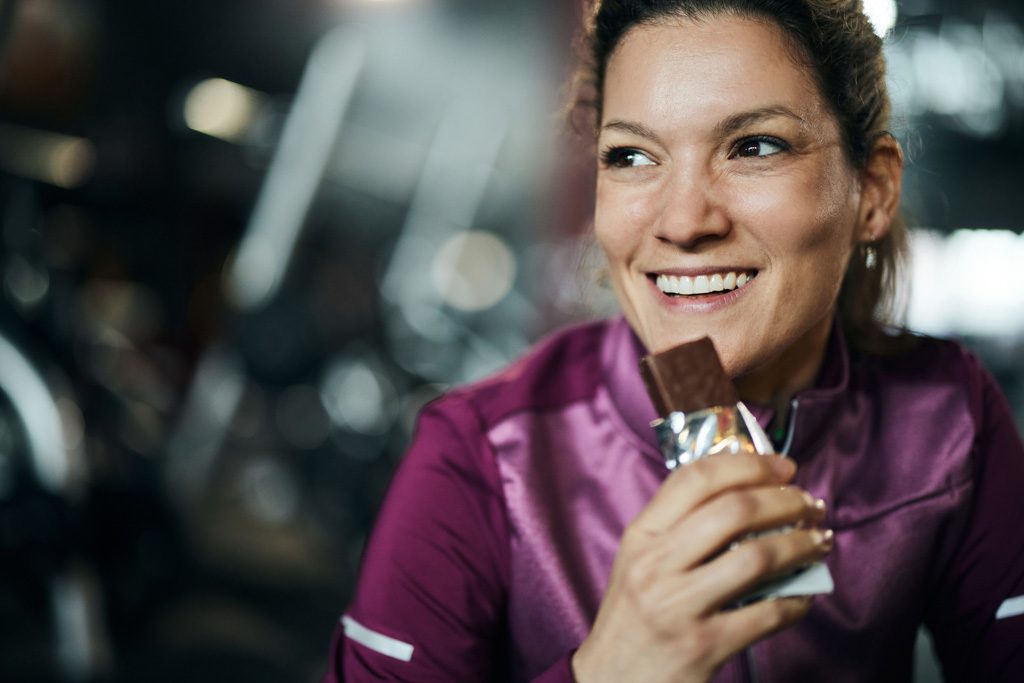Gym owners and nutrition coaches are going to have to set the record straight on “legal appearance- and performance-enhancing drugs.”
So what are “APEDs”?
Well, protein bars and shakes count, according to a new study. Caffeine, creatine and probiotics are also APEDs, apparently.
And one of the study’s authors, Kyle T. Ganson, has made a few bold suggestions gym owners and clients might find concerning:
- Governments should add taxes to these products to deter use by younger people (and generate more funding for—you guessed it—researchers).
- Products like this should not be easily accessible—perhaps a pharmacist should control access to them at a counter.
No, I’m not making this up.

First, the study: “Use of Legal Appearance- and Performance-Enhancing Drugs and Substances: Findings from the Canadian Study of Adolescent Health Behaviors,” published in December 2022 in Substance Abuse and Misuse by Ganson and others.
I have not been able to find the full text outside a paywall, so here’s the abstract.
Short summary: “Use of appearance- and performance-enhancing drugs and substances (APEDS) is common among adolescent and young adults. Many APEDS are legally sold ‘over-the-counter,’ however research has documented contamination of legal APEDS and many adverse effects of use.”
I can see a problem with a teen obsession with diuretics. And an unhealthy, insatiable need to gain muscle to become the next superstar Instagram influencer would be concerning. We should always protect kids from preventable harm.
Similarly, contaminated substances are a problem. I’ve interviewed a devastated athlete who got banned from fitness competitions for testing positive for performance-enhancing drugs, and he claimed it happened because his legal supplements were tainted.
But the new catchall term “APEDs” is incredibly broad: The study lumps diuretics and “water pills” in with whey protein, creatine, caffeine, energy drinks, pre-workout supplements and other common products that just don’t set off a lot of alarm bells.
Criminal Offending and Supplements?
From CTVnews.ca:
“Some effects of muscle-building and weight-loss supplements include ‘problematic alcohol behaviours, such as binge-drinking, future use of anabolic-androgenic steroids, criminal offending, intimate partner violence, sexual risk behaviours, muscle dysmorphia and eating disorder symptoms, disability, and death,’ the study reads.”
These are not “effects” of supplements. I think it would be more correct to say that some people who are prone to bad behavior also take creatine, but I’m struggling to see a causal relationship between probiotics and violence.
Further, it’s silly to suggest pharmacists should guard protein bars to protect consumers. In fact, given well-established nutrition science, you might make a greater case for locking up chocolate bars, soda or high-fat snacks.
Again, I’m not discounting body dysmorphic disorder or the pressure young people feel to look a certain way. But that pressure is coming from social-media influencers and celebrity culture. Even in troublesome cases where kids turn to extreme and unhealthy supplement regimens in order to conform to a set of appearance standards, supplements are not causing their behaviors.

Healthy Food and Healthy Goals
If you set aside the cases that are clearly best handled by trained therapists and medical professionals to focus on other kids, most parents wouldn’t have a problem with adolescents who choose protein bars and chicken breasts over chocolate bars because they want to gain a little muscle and make the team. That, to me, sounds like a very healthy, productive decision. It’s inspiring, to be honest.
I just don’t see a huge supplementation problem if we’re talking about generally healthy people who are interested in fitness and athletics. In fact, the 2,700 people between 16 and 30 who provided data for Ganson’s study actually seem like they’re combatting the obesity epidemic more effectively than any government.
From CTV: “About half of the respondents (who provided data) indicated they wanted to gain weight or muscle (52.8 per cent), showcasing the increased usage of muscle-building APEDs. A majority of the sample (62.2 per cent) also said they had done weight training in the past 12 months.”
Forgive me for saying “great!”
Recall this:
- In 2017, 30 percent of Canadian kids aged 5-17 were overweight or obese.
- In the same year, 64 percent of Canadian adults were overweight or obese.
- Governments try very hard to get people to move more and eat better.
- Strength training has incredible positive physical effects on the body.
With that in mind, I’m not sure we need to lock up the supplements and dumbbells. In fact, I’d be absolutely thrilled if more people learned to love fitness under the care of a great coach who knows how to fuel someone to optimize health and accomplish athletic goals.
That would be you.
Your Voice Is Needed
We can pick at this study and the articles about it forever, but I’ll move on to remind you, the gym owner, that this sort of strange information is out there in the media. Average people will definitely be confused when they hear academics making odd statements about fitness, nutrition and supplements.
But you have the knowledge and the platform to correct the record and explain when and why it might be appropriate for kids and adults to take supplements. You can tell them which ones work and which ones are garbage. You can tell people how to use supplements appropriately as part of a complete nutrition plan.
And, working carefully within your scope of practice as a coach, you can help kids develop healthy body images and reasonable performance goals that will increase confidence and self-esteem. If an athlete of any age has a post-workout protein shake on your watch instead of a liter of cola and a fast-food gut bomb after a six-hour “Call of Duty” session, that’s a win in my book.
The point: This is exactly the kind of issue that demands comment from intelligent, experienced gym owners. If you need a topic for your blog or newsletter this week, answer one or several of these questions:
- Are protein shakes bad for kids?
- Do young athletes need supplements?
- Which supplements should I take?
- Is creatine effective and who should take it?
- Do I need pre-workout supplements?
- What are the best pre- and post-workout meals?
- Should kids lift weights?
- How does strength training improve health?
And so on. You can probably think of 10 more related questions you can answer. Maybe 100.
Remember this: The people in your audience need to hear your answers. If they don’t, they might get led astray. Don’t let that happen.

